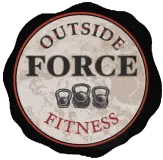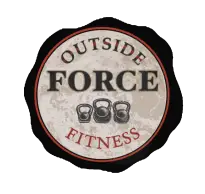There are many routes to becoming a fitness trainer. One route is to not be certified in anything and just wing it. The other is to get certified and then start training people. Then you could also go on and get a college degree in Exercise Science and become a really, really knowledgeable super trainer. Here I’ll go over what the college route teaches you and what really makes (in my opinion) a well-rounded trainer.
Is It Necessary To Have a Degree To Be a Personal Trainer?
Anything, really. You don’t have to be certified to be a personal fitness trainer.
You leave yourself open to some serious legal issues if you injure someone, but you can stand on the gym floor with a shirt that says “Coach” or “Trainer” and give all the fitness advice you want. No government entity cares.
Trying to get insurance as a personal trainer (if someone tries to sue you) may be a problem without any certification.
What a Certified Personal Trainer Knows
So let’s say that Johnny workout likes to exercise and has trained himself up to an impressive level. He now wants to train others and he starts teaching them the methods that worked for him.
He hasn’t necessarily studied the basics: anatomy, the various systems of the body (circulatory, skeletal, etc.), nutrition, and many more. He’s just trained in how to train himself and he’s studied whatever he needed to get himself to where he wanted to be.
The Certified Personal Trainer has at least had a formal introduction to anatomy, the principles of exercise physiology, the different systems of the body, how to train people of all ages, risk factors, fitness assessment, etc.
I say “introduction” in the above paragraph because that is what it is. There is not an extensive study on the subject of anatomy or the other systems of the body.
But the Certified Personal Trainer is well-enough versed in the human body and how to train it that he’s probably not going to hurt you. That is a very, very big deal.
Note: All sorts of organizations are willing to take your money and certify you as a personal fitness trainer. Some are great, some are not so great. So there is also a major variety within the “Certified” group as well.
Experience Is a Factor in Personal Fitness Training
You have some people who have been around the fitness industry for a long time. They’ve been training clients since you were in diapers. Just having so much experience and exposure to a variety of clients gives them a wealth of knowledge. They have first-hand knowledge of what works and what doesn’t because they learned the hard way – trial and error with their clients.
I have a lot of respect for these people – whether or not they ever ended up getting certified. If they’ve been in the industry that long, they really do care about the trade and getting people to reach their own fitness goals. If they didn’t know something, they studied up on it and helped the client that was in front of them.
These seasoned trainers have a visceral knowledge of what a person can take and they are usually very observant.
Whether you are uncertified, certified or have a college degree, a trainer who has been around for a decade has very good observation skills. Just one look at someone and they can tell you 10,000 words about them and give some pretty accurate predictions about their abilities.
A College Degree in Exercise Science
This group is a different breed altogether. They have tons of knowledge, but many lack experience on the gym floor with real people.
Before I beat the college kids up too much, let me tell you what they do know and what they have done.
This group has taken multiple courses on human anatomy. They’ve tested every way of measuring body composition and written a 10-15 page report on it. They’ve studied each and every system of the body and been tested on their knowledge.
They’ve often dissected animals (and sometimes humans) to get even more of a grasp on anatomy.
They’ve hooked themselves and others up to an ECG and gone running on a treadmill to see what happens to the heart. They even learned how to take someone’s blood pressure manually while running.
I’ve run on a treadmill like that and had a tube strapped to my head that I breathed into to measure how much oxygen I was using (VO2 Max Test).
The variations in studies performed, classes in nutrition, biometrics, kinesiology, etc. are stunning.
I once worked out a year’s exercise programming, down to the daily workouts for a collegiate hockey athlete. It was broken down into pre-season, in-season, post-season and off-season.
Why a College Degree Alone Doesn’t Mean Anything
I graduated with several individuals who didn’t really exercise much. Most of them didn’t train other people and were interested in becoming Physical Therapists.
I can say that I had the absolute best education because I had theory in the morning and then I went to the gym in the afternoon and practiced what I learned. I studied about the knee, then I trained a knee.
There is absolutely no better way to go about it and actually retain the knowledge. You can study it from the viewpoint of “I hope I remember this someday when I need it” or “I wonder how this is going to apply go Mrs. Garrison.” I’ll let you figure out who retained the knowledge. I was studying to apply it right away.
But in spite of my high-brow studies in class plus my experience in the gym, any unschooled hockey coach could have made me look like an ass because he’s got some serious on-the-ground knowledge.
My Route
I started as a janitor in a gym and didn’t have any prior interest in exercise other than the fact that I didn’t want to be so skinny. The head trainer saw that I got along great with people and decided that she could make a trainer out of me. Communication is a strong skill in a trainer and is often the make or break factor to getting someone to reach their goals.
So I got thrown on the floor training someone with zero fitness certifications. A couple months later I got a CPR certification. Some more months later I got a dinky fitness certification (I won’t say what).
But even then, I knew that I didn’t know shit. I was working under a self-taught person who was great with people and got them to their goals but wasn’t too great on explaining the science behind it.
I started training people while I was in high school and so I decided I’d study exercise science in college.
I graduated and then I was a super-knowledgeable fitness trainer in comparison to the crop of trainers in my city around 2009.
What a Thorough Understanding of Anatomy Does for a Trainer
I have to make a special note here about the subject of anatomy. Above all, a trainer should know the structure and functions of the human body.
The more I knew about the body, the more I could think on my own with the subject of exercise. I could think through why something hurt: “Oh, this is pulling on this, due to tightness here…”
My client had a chronic problem with their shoulder, and it just made sense to me at one point. Then something else made sense. It was like the entire subject unraveled for me.
Studying every major bone. Naming each indention (fossa) and understanding why it is there, then naming every projection and understanding why it is there, seeing why each bone is formed in a very specific way – this is the level of understanding I’m talking about.
This type of knowledge goes far beyond just seeing a bone and being able to identify it. They aren’t accidentally formed. Even every bump on our goofy-looking vertebrae has a specific purpose.
As a trainer, you’ll know what is best for the knee because you’ll be able to reason your way through it.
There Is No Perfect Route To Follow
Every trainer has their specialty. They work best with people of certain body types, certain sports, weight loss, weight gain. There is no right way.
If you’ve got a strong history in track and field, then go and get yourself a college degree and several certifications. Then you’ll have tons of knowledge and experience along a specific line that other trainers just don’t get. You’ve seen yourself and your teammates go to track meets and are aware of the exercises, injuries and stresses within that universe.
Don’t think that that information isn’t valuable.
The Make-Break Point of a Fitness Trainer
In my opinion, the difference between someone who should be on the floor and someone who shouldn’t is: are they hurting people? Are they teaching poor form or giving false information that will ultimately lead to an injury?
Conclusion
There is a tremendous amount of valuable information to be gained on the body in a college setting. A fitness certification is just a small introduction.
But it all means nothing if you can’t apply it.



